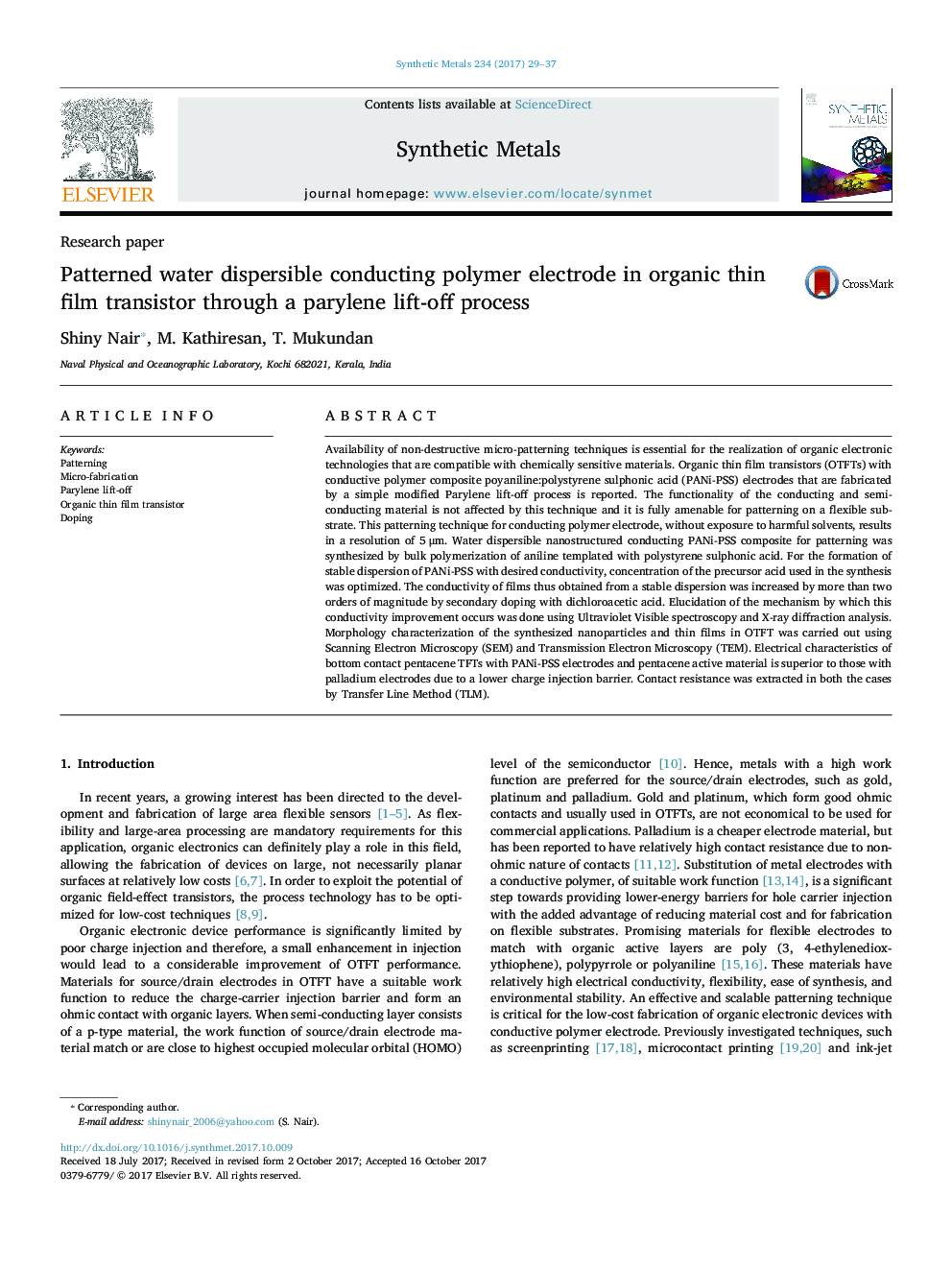| Article ID | Journal | Published Year | Pages | File Type |
|---|---|---|---|---|
| 7873741 | Synthetic Metals | 2017 | 9 Pages |
Abstract
Availability of non-destructive micro-patterning techniques is essential for the realization of organic electronic technologies that are compatible with chemically sensitive materials. Organic thin film transistors (OTFTs) with conductive polymer composite poyaniline:polystyrene sulphonic acid (PANi-PSS) electrodes that are fabricated by a simple modified Parylene lift-off process is reported. The functionality of the conducting and semiconducting material is not affected by this technique and it is fully amenable for patterning on a flexible substrate. This patterning technique for conducting polymer electrode, without exposure to harmful solvents, results in a resolution of 5 μm. Water dispersible nanostructured conducting PANi-PSS composite for patterning was synthesized by bulk polymerization of aniline templated with polystyrene sulphonic acid. For the formation of stable dispersion of PANi-PSS with desired conductivity, concentration of the precursor acid used in the synthesis was optimized. The conductivity of films thus obtained from a stable dispersion was increased by more than two orders of magnitude by secondary doping with dichloroacetic acid. Elucidation of the mechanism by which this conductivity improvement occurs was done using Ultraviolet Visible spectroscopy and X-ray diffraction analysis. Morphology characterization of the synthesized nanoparticles and thin films in OTFT was carried out using Scanning Electron Microscopy (SEM) and Transmission Electron Microscopy (TEM). Electrical characteristics of bottom contact pentacene TFTs with PANi-PSS electrodes and pentacene active material is superior to those with palladium electrodes due to a lower charge injection barrier. Contact resistance was extracted in both the cases by Transfer Line Method (TLM).
Related Topics
Physical Sciences and Engineering
Materials Science
Biomaterials
Authors
Shiny Nair, M. Kathiresan, T. Mukundan,
